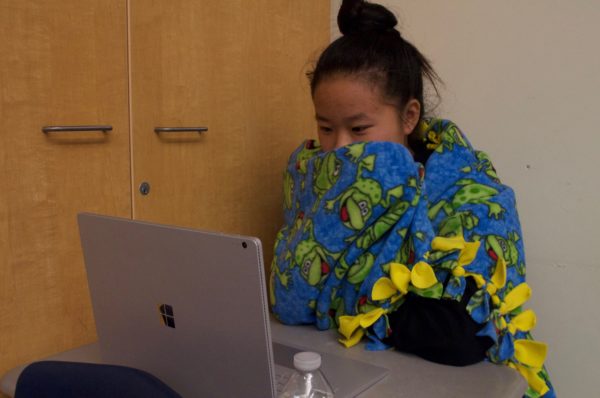
By Isabella Purdy, Jennifer Trend & Ella Scott-Wallace, Staff Writers
Homework is not an unknown concept to students- given out every day in almost every class, the amount of work a student has to do after school piles up until they are overwhelmed. Is the amount of homework too much? What happens when extracurricular activities are added to the mix? Should teachers rethink the amount of homework given?
Every day, teachers give out homework to complete after school, expecting students to have the time to complete it thoroughly and with almost no mistakes. They usually back up their views by explaining that the content was explained in class, so students should understand it.
But even for students who have only a few honors or Advanced Placement (AP) classes and no after school activities, the amount of homework given has them staying up until late hours, and sometimes they don’t have the time to finish it all.
Based on this, one can only begin to imagine the amount of homework students with four or five AP classes have, on top of a sport or after school activity. The amount of time given to complete it all would not be enough.
A form of homework often assigned to students is busywork, which has little to no benefit towards preparing for upcoming quizzes and tests. It is usually given out with substitute teachers as a way to keep students working during a class period where nothing is really going on. But when busy work turns into classwork and homework, it can affect a student’s schedule negatively, and for what? A grade out of five points on an assignment that won’t help them in the long run? Talk about a waste of a student’s time.
And the story only gets worse when teachers don’t thoroughly teach the lesson that corresponds with the work given out, expecting students to learn at home or already know it. This, along with the amount of homework assigned, causes unnecessary stress on the student, as they worry that they won’t be able to finish the assignment and get a zero, which could lead to a failed class, which most students would find to be the end of the world.
Even after the rigorous amount of homework we have throughout the school year–including weekends and breaks–there’s still more to complete during the summer, a time where students are supposed to relax and take a break from school-related activities before the next school year.
Most of the summer homework given out is followed up by a test that analyzes the students’ knowledge on sometimes specific details they read about over the past few months. This test is then inputted into the grade book, making it the first, or one of the first, grades a student receives in the year.
Instead of testing students’ memorization on obscure details from their summer reading that aren’t important, we should be asked what we actually learned from the book. Questions on characters’ ages, and other specific details aren’t beneficial to the student. They’re just small facts we have to memorize before a test that will boost our gradS. If anything, we should speak about the messages we received from the book and how those themes still apply to today’s life, even if the book was written tens or hundreds of years ago. The messages we receive from books are timeless–insignificant details are not.
So, what kind of homework is beneficial to the student? Homework that helps the student prepare for tests and quizzes certainly are, but sadly, not all homework does this for students. Sometimes lengthy assignments only count towards a grade and nothing else.
To the teachers, perhaps start talking to students and understanding what their schedules are like. Or perhaps allow half or at least part of the class dedicated to going over the homework so students can ask what they did wrong, how they’re supposed to do it or how they could improve. Yes, it may take away from class time, but it allows students to fully understand the content before continuing onto the next lesson.
And don’t belittle students for not completing homework or for not understanding, especially after not thoroughly teaching the lesson. We are here to learn from you, and we aren’t able to effectively teach ourselves as we don’t fully know the content.
And to the students, until teachers assign less homework, we’ll just have to hold out and continue going on as we always have been- through enormous amounts of stress and high expectations given by teachers.





